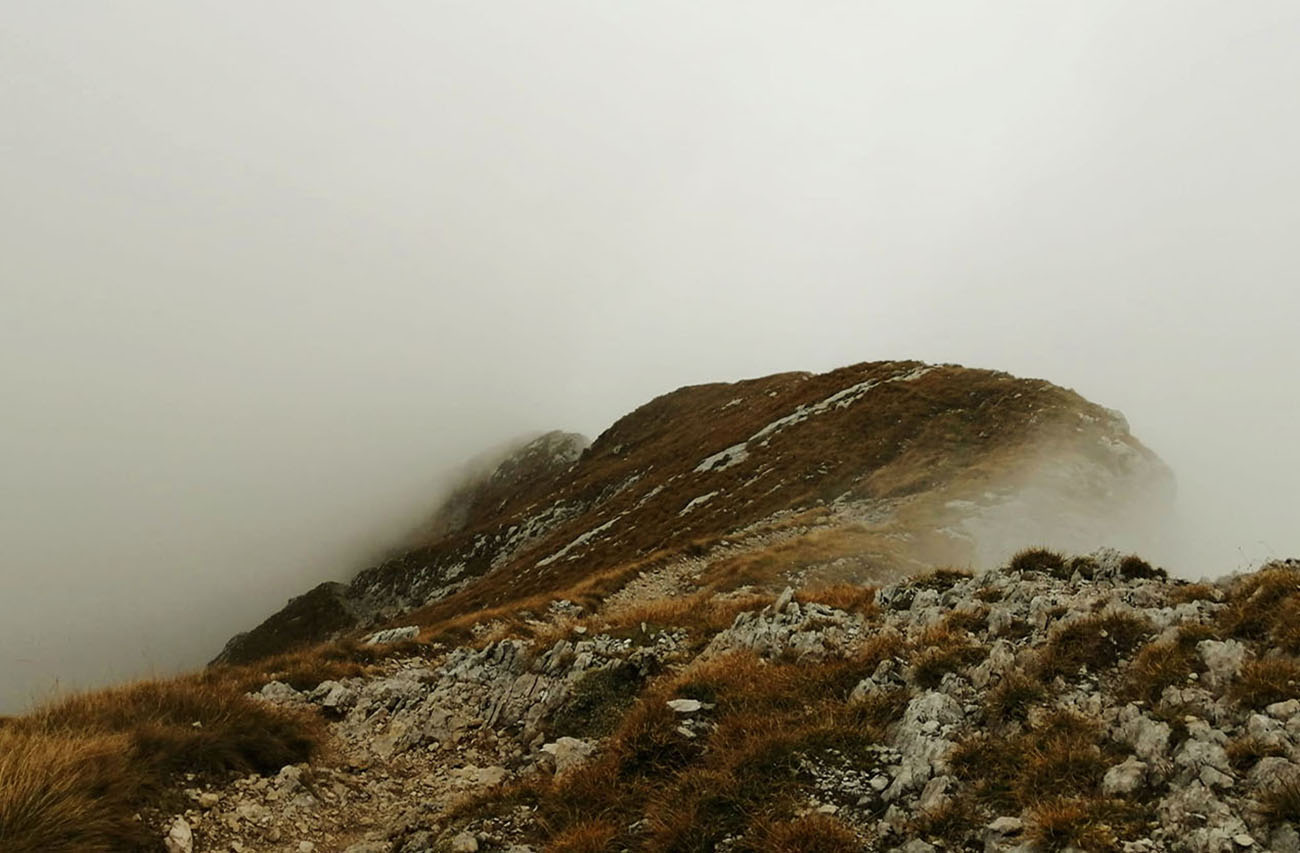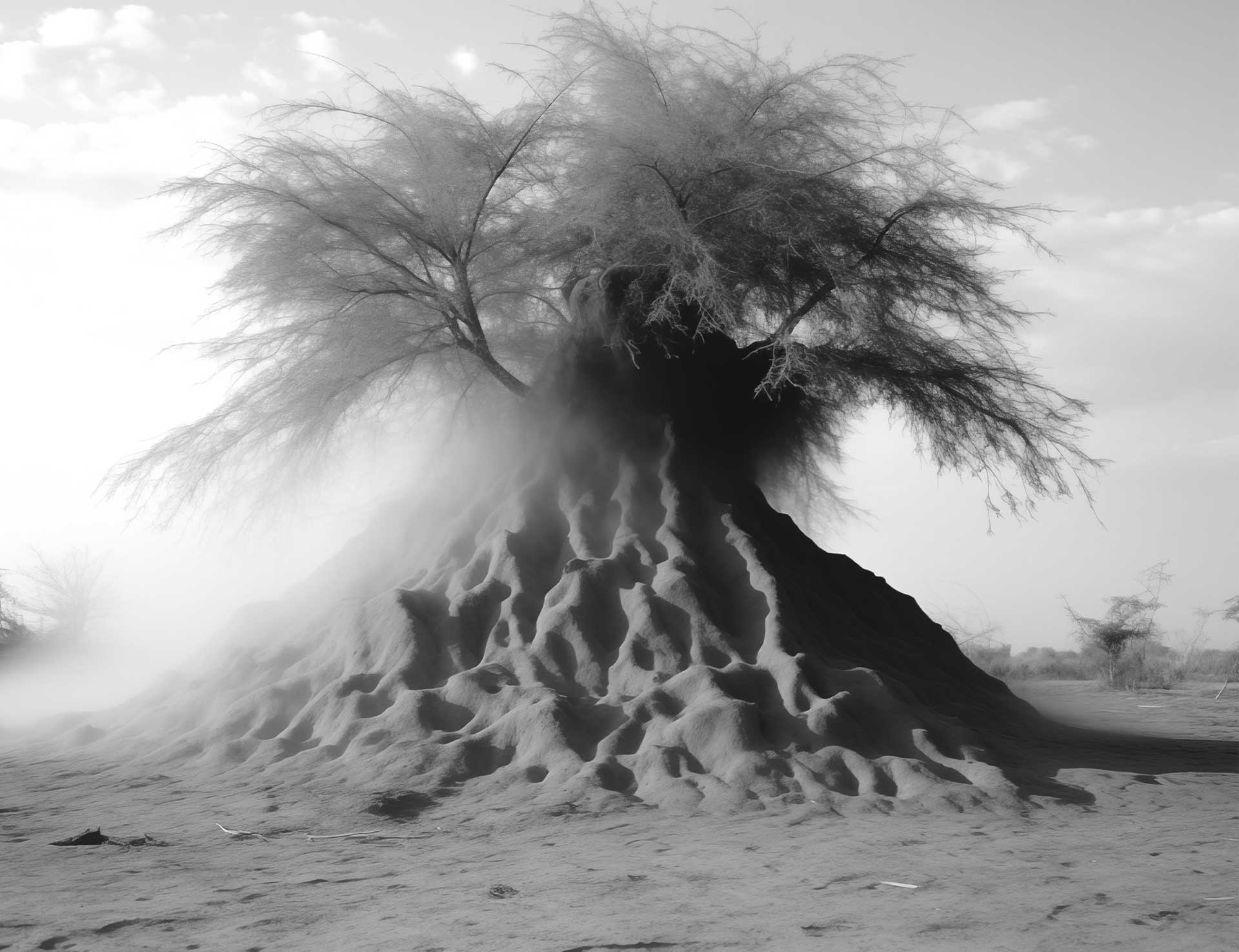
“How can we feel so nostalgic for a place we’ve never truly lived? And ache for a language we half understand? And feel any kind of reverence for a land whose politicians exiled us, even though the rivers run in our veins?”
Annie Mirza
There’s a garden I’ve never seen before, but I remember it. I think there’s a mulberry tree that grows in that sun-beaten courtyard garden filled with birds and other animals. A little girl plays games and laughs with her sisters and brothers there, in the blistering, unrelenting sunshine of South Asian summers. It’s a place, a memory, I inherited through the childhood stories my mother told me, a piece of ancestral geography passed down through her smile as she fed me white rice and yellow dhal with her bare hands on a cool, grey afternoon in England.
She described her childhood in the way we talk about long-lost friends, casually but with fondness. That garden, the hillsides, the endless laughter—I carry them with me. And those trees, the cow my grandparents kept, and the mango baskets were a first glimpse into something beyond us. This is how reverence begins: in the stories we’re trusted with.
I’ve gathered lots of heirlooms this way. Fragments of land tucked into habits and recipes and stories that fold into one another. But there’s always a question, one that occupies so many of us who live in the diaspora, balancing belonging.
Where do we truly belong? Where’s home when borders we’ve never seen violently split the land and water we come from? And are we truly made of the land our ancestors walked? How many of us are made of many places? I was born in England to parents whose lives traced the fragmented history of ‘pre-partition India’ to what’s now become Bangladesh, India and Pakistan. I was raised between English hedgerows and the dry orange skies of Omani afternoons.
My family? They’re scattered across oceans, Canada, Australia, Pakistan, England, Fiji… and the idea of home never stands still. It’s always felt like a rhythm in my body, rather than a location on a map. And maybe that’s the point? Because even longing is a kind of belonging, not to a single place, but to the thread that ties them together.
Luckily, I visited Pakistan, the ancestral land, countless times. I know the burnt sugar scent of chai stalls in Lahore, the way dust collects on skin by noon, and the humming rooms of old homes thick with memories that aren’t quite mine. And yet, even there, home is a shimmer. Familiar, but uncertain, just out of reach like an echo. How can we feel so nostalgic for a place we’ve never truly lived? And ache for a language we half understand? And feel any kind of reverence for a land whose politicians exiled us, even though the rivers run in our veins?
My addresses have shifted like seasons. I’ve lived in too many postcodes to believe home is something fixed. For me, home is ritual, scent, and language. It’s grief. It’s inheritance. It’s the mulberry tree I’ve never seen, the handmade corn flatbreads I’ve never tasted, and the mountains I somehow miss. Most of all, home is remembering and revering: a quiet, unspoken devotion to the lands and people who shaped me, even from afar, even long ago.
Colonialism didn’t just claim land; it broke rhythms. It dislocated our familial rituals and knowledge, unravelling the relationship between people and place, between the human body and the body of the Earth.
For so many of us shaped by migration and displacement, reverence must begin with remembering. Not just where we took root long ago, but where we are now and what was interrupted.
I didn’t grow up on ancestral soil; I’ve never even seen some of it, but I grew up with it. In the way my father’s scratchy vinyl records echoed Punjabi folk melodies, in the way my mother wore golden bangles that sang at dinner parties, and in the nursery tales she told us in Urdu over a steaming basket of roti. These were more than customs; they were ways of tending to a lineage of care. When simple moments of cultural heritage are embedded in gestures, silences, spices; this too is reverence to Earth. Not through grandeur, but through quiet presence, gentle and meaningful, which can’t always be happy or beautiful. Sometimes it begins in loss, in grief.
Grief has a way of sharpening the questions of home. When we lose the people who once carried those memories for us, we begin listening more closely for the places that still hold them. When my parents died, I returned to Pakistan and whilst it wasn’t the first time I’d gone, it was the first time I arrived knowingly searching for something within. People saw my mother in my dimples and my father in my skin colour. But the land itself knew me outside of their presence and absence. It received me gently, with resonance, and a calm feeling settled over me. It felt safe, as if it actually spoke to me about how sorry it was and how much it missed me, seconds after walking out of the airport into the bustling, dusty heat.
In grief, the boundary between body and earth softened.
And that dust and heat on the skin became more than atmosphere, and Pakistan, the soil of it, felt as close as it always was. But I didn’t need to go there to know home or to know my lineage. Every landmark—tree, bird, cow, mosque—was evidence of memory. Because we don’t just get from the land, the land ‘gets’ from us too—our footsteps, our presence, and our longing. So, reshaping our love for our land comes from understanding it more gently. The land itself is our relative; it’s more than a resource and we don’t have to be there to know it.
Often we think of land as a place to simply arrive in, but what if it could arrive in us? In the way rosewater reminds me of midnight vendors selling handmade tuberose bracelets on the roadside? In the way the lentils spin in a pot being stirred across generations? These aren’t small things; they’re those loosened threads that can tether us to something older than geography. And when we give attention to them, we’re participating in reverence for land.
We’re forced to be in many places at once: the UK, the USA, Pakistan, India, Australia…all the places we’ve been and known. And living in the diaspora means longing for something we can’t truly name. But in this, we learn to give attention—sacred attention—to the trees your great-grandmother and her sisters laughed under, to the mangos your uncles excitedly brought home, and to the memory you don’t live or know but feel. To the living, breathing scar of a tragic history that is us.
When we understand that memory is geography that we carry in our body, it’s not just sentimentality; it’s a map. And your body, your nervous system, remembers what borders try to erase.
When you stand by a river and feel safe or hear bird calls that bring an ache you can’t trace, it’s nature calling you home, within you.
Our bodies aren’t separate from soil and ash; it’s where we lie in the end. And we’re not foreign to forests or waters; wherever they grow and flow, we’re part of them. To remember where we’ve been, what we’ve seen, what we’ve heard, and the stories invites us back to Earth with a quiet noticing.
The land knows us; it calls out. Not to ask us to be there, but to say we were never gone. Even in exile, that land waits. Even in time, the land echoes. And we need to pause long enough to notice, because land doesn’t always require witness; it can arrive through memory, through love.
The land knows us; it calls out.
We belong to the art of remembering, to the mulberry tree, to the rain and to the horrors of displacement we never saw—the love that binds us. We belong exactly where we are, to the places we’ve lived and the places our ancestors lived. Within that longing for the unknown, we belong. And somewhere in the folds of memory, beneath layers of language and depths of waters crossed, the land remembers you.
And for a little while, just dwell there, and you’ll find home again.
Words by Annie Mirza
Annie, known in her mother tongue as Qurat-ul-Ann, is a writer and creative strategist, nestled in Glasgow. Annie works in content marketing, seeking out small, intentional brands to build stories and rekindle relationships with people through words and visuals. She has a master’s degree in Linguistics from the University of Oxford, enjoys practising calligraphy and watching the birds with her cat, Kishmish.




